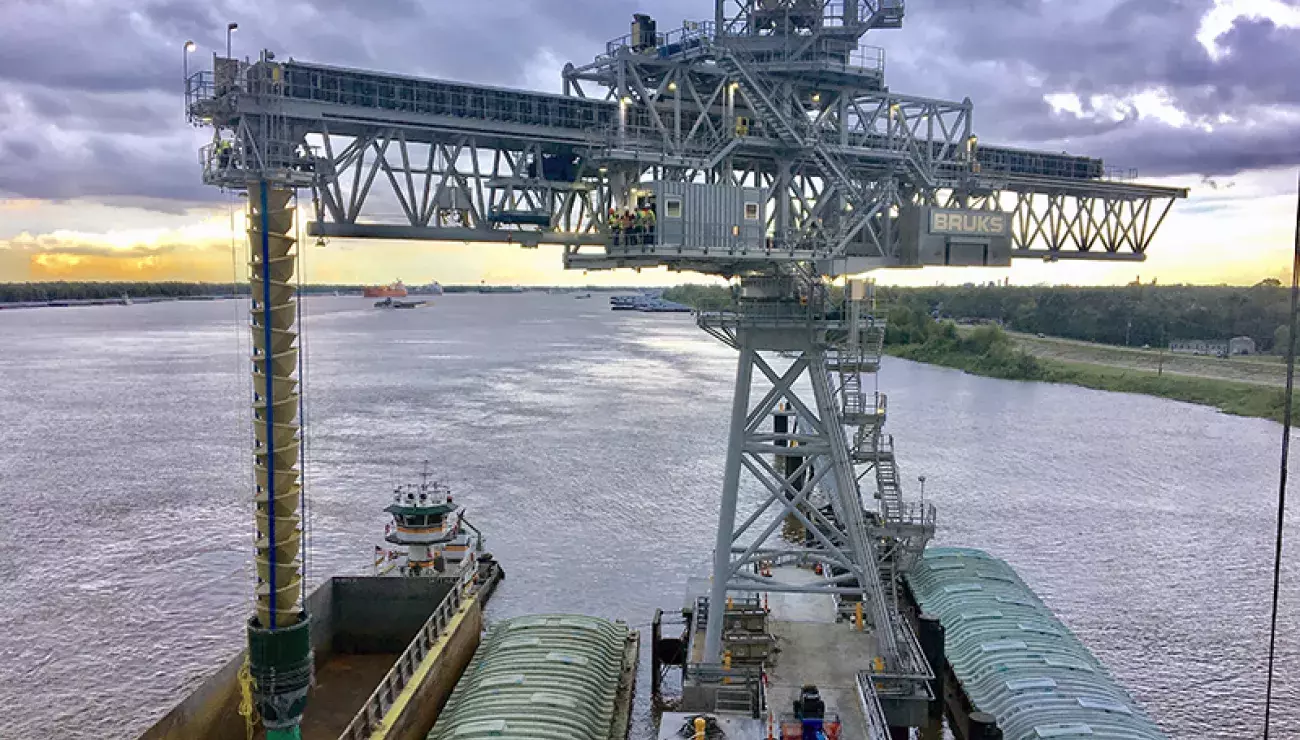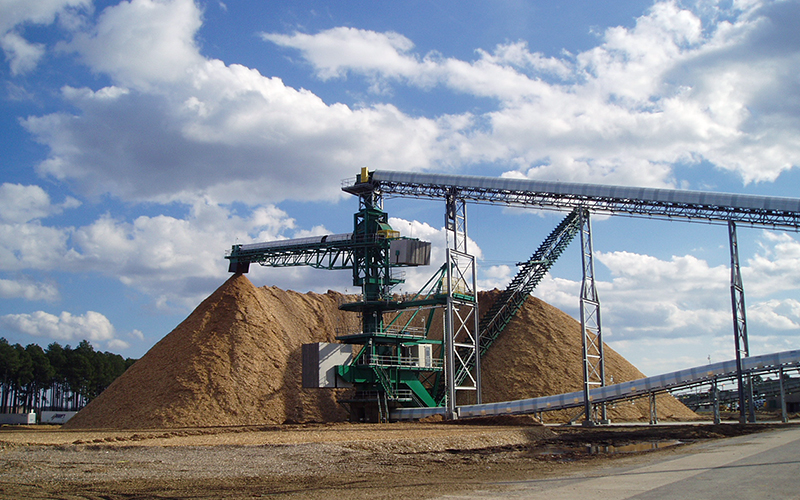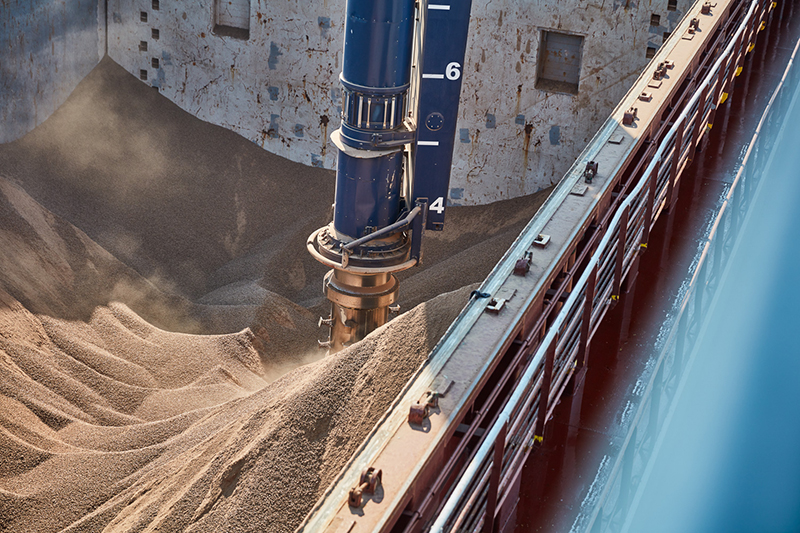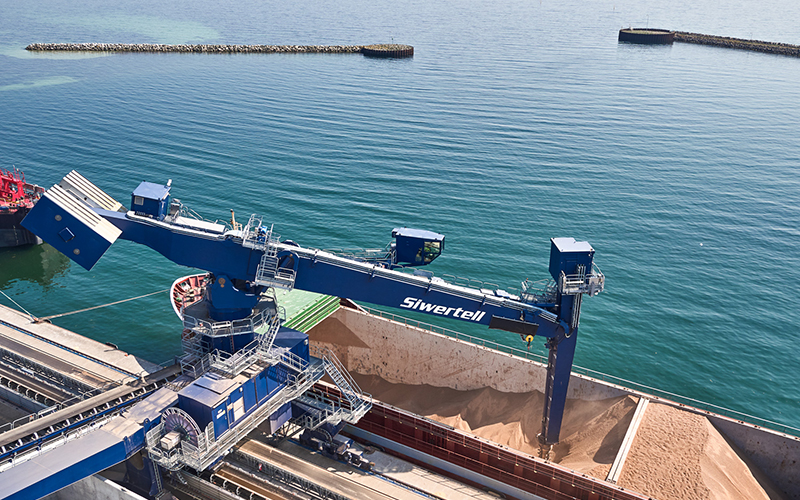
Better together: Bruks Siwertell
3 Jul 2019The merger of two world-leading brands, Bruks Holding and Siwertell AB, combines complementary strengths and extends capabilities far beyond traditional boundaries, offering customers unique access to an unprecedented range of products and services
For many in the dry bulk industry, both Bruks and Siwertell have become fundamental elements in their value chains. In May last year, parent companies JCE Group AB in Sweden and Cargotec Corporation in Finland, signed a deal in which they merged, forming the Bruks Siwertell Group, of which JCE Invest owns 52 percent and Cargotec the remainder.
“Bruks and Siwertell both felt that the current industry climate and the potential for growth meant that a joint venture would be a success,” says Bruks Siwertell CEO Peter Jonsson. “We worked together to ensure the merger process was efficient and mutually beneficial and I believe that the integration of the two companies has been seamless.”

Both companies have their roots firmly in Sweden and have successfully grown through the development of high quality customer-driven solutions. Their respective growth has seen Bruks become a mainstay of the American and European timber industry, with a strong product portfolio of wood-processing, conveying, storage, and stacking and reclaiming systems, and Siwertell leading the global dry bulk handling industry with screw-type ship unloading systems, extremely versatile road-mobile and port-mobile unloaders, loaders and bulk terminal solutions.
“Bruks and Siwertell are two strong brands that complement each other very well, both in terms of product portfolio and market coverage,” says Per Karlsson, Siwertell President. “Siwertell will benefit from Bruks’ strong position in the US market, whereas Bruks will gain access to Siwertell’s Asian network, knowledge and exposure. “I am delighted with the progress and opportunities that it is already offering our customers and our wider organization,” he adds.
The joint venture between Bruks and Siwertell offers customers unprecedented access to a portfolio of products for complete dry bulk terminal solutions of any type.
“Our merged capacity has created a diverse strategy that will see us continue to focus on developing specialized solutions for customers,” continues Mr Jonsson. “For example, we plan to grow our sea terminal business by providing the most comprehensive range of equipment that these specialist terminals require.”

Growth in Asia
“Our new business arrangements are already paying off in Asian markets,” notes Mr Jonsson. “Prior to the merger, the Bruks US group was focused on exports, substantially supporting wood pellet producers by exporting their products, whereas Siwertell was very involved in the import side, supplying the equipment to offload the pellets coming into Europe.
“Now that we are one unit, we are capitalizing on both sides of the spectrum in the Asian market,” he explains. “We have several large utilities in Asia asking for our help on the unloading side. The close relationship that we have with customers in the US has meant that we have been able to introduce them to these utilities in Asia. In some cases, the US pellet manufacturers were unaware of these opportunities. We have brought them to the table, informing them that a particular utility is looking to import millions of tons of wood pellets. If they are not talking to each other, we offer to make the introductions.”

Booming biomass markets
“Although the number of large-scale wood pellet industry projects varies from year to year, the wood pellet market remains an important and significant part of Bruks Siwertell’s business,” says Mr Jonsson.
The merger has come at a time when the appetite for exported American biomass pellets is substantial. Bruks’ position in the US market, providing systems for handling and processing timber, has meant it has been a major beneficiary of this growth.
“Bruks has a longstanding commitment to providing optimized solutions to the wood pellet industry,” says Mr Jonsson. “The company has designed a complete product line to handle timber in the forest and process excess materials at saw mills. Equipment includes hammer mills to create sawdust from woodchips, as well as products to produce, transport and store wood pellets.”
Siwertell’s position in the biomass market only serves to complement this, with its vertical screw-type ship unloaders offering the best cargo handling capabilities in the business; qualified by the high capacity continuous transfer of biomass pellets from cargo vessels without dust, spillage or material degradation.
“Siwertell’s screw-type ship unloader offers unique capabilities for handling wood pellets,” he notes. “It is also currently the only continuous ship unloader on the market with the capacity to efficiently handle both coal and wood pellets, seamlessly switching between them without any adjustment or loss in performance. This is especially advantageous currently as power plants are looking to diversify fuel supplies, particularly in Europe, and are making transitional moves from coal to wood pellets for energy production.”
Showcasing capabilities
A notable example of Siwertell’s superior performance in the fuel handling sector is at the TP Utilities’ terminal, a subsidiary of Tuas Power, on Jurong Island in Singapore. The facility is served by two screw-type Siwertell ST 640 M unloaders, installed between 2012 and 2013, which instantaneously handle alternating shipments of coal and biomass destined for Tuas’ Tembusu Multi-Utilities Complex (TMUC).
A further showcase, demonstrating the combined strengths of both companies, is highlighted at the industry-leading Avedøre combined heat and power (CHP) station in Copenhagen, Denmark. The coastal facility has led the power-generation industry for decades, having reached an efficiency of over 90 percent thanks to its advanced waste-heat-recovery systems, which also supply the local area with piped heating.
Owned by Ørsted, formally Denmark Oil and Gas (Dong Energy), the power plant has eliminated coal use entirely and Ørsted plans to replace it completely with biomass in its other plants by 2023. Avedøre’s fuel supply is secured with a Siwertell ST 790-D ship unloader, which has been in operation since 2013. It now exclusively unloads biomass, having made the switch effortlessly in 2016.
For its part, the biomass pellets that feed this world-class power station, which are prominently sourced from North America, have, in some way, been handled and processed by Bruks equipment.
“Now, Bruks Siwertell captures the entire export chain from North American lumber mills to European power plants, and contingents in Asia, the Middle East, and South America,” adds Mr Jonsson.

Extended customer relations
A combined installation base means that Bruks Siwertell products are in operation on almost every continent. From a single mobile wood chipper to an impressive customized Bruks stacking and reclaiming system or a high capacity Siwertell ship unloader, all share a common thread. They are designed to meet customer needs, and their high quality manufacturing ensures a long, safe service life, offering their owners the best return on investment and maximum environmental protection.
“Developing our range of customized systems has made both Bruks and Siwertell very good at solving problems. Each new customer benefits from the problem-solving capabilities that we have built up over decades,” Mr Jonsson explains.
“Neither Bruks or Siwertell has gained just a portfolio of products from the other,” he continues. “We have secured these decades of industry knowledge and technical expertise for each other.
“Siwertell’s unique ship unloader is undeniably the most efficient and environmentally friendly equipment to continuously unload ships on the market today,” Mr Jonsson explains. “Coupled with Bruks’ conveying and dry bulk material storage solutions and strong product portfolios for ship loading, Bruks Siwertell provides significantly more innovative solutions for its customer base, which has embraced the new company.
“Capitalizing on our combined global market coverage enables both brands to extend customer relations and create a wider geographic reach, and the group is seeing new business opportunities and developing new leads worldwide” Mr Jonsson highlights. “Our dynamic new company also provides an extended service network to its customers worldwide.”
PLEASE CONTACT US FOR MORE INFORMATION

 Bruks-Siwertell
Bruks-Siwertell